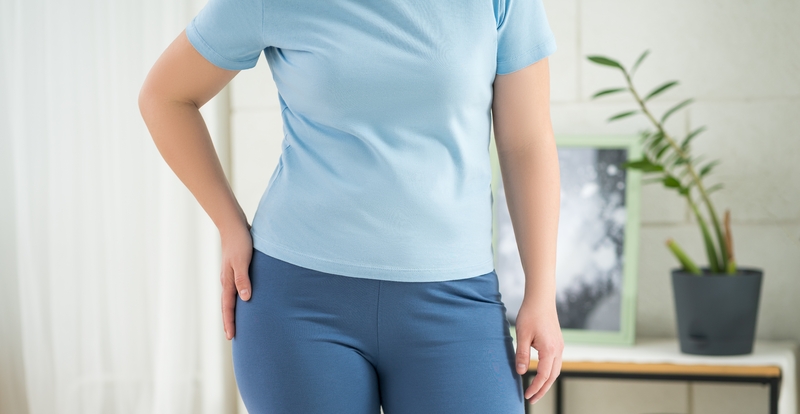
If you have pain, stiffness and inflammation in your hip joint, these tips can help.
Many people experience hip pain on occasion. This may be due to strenuous activity or moving wrong. As you get older, hip pain may become a more common occurrence. This is primarily due to arthritis but pain in the hip joint may also occur due to inactivity, being overweight or having less flexibility. Whatever the cause, having pain in your hip is not fun and may cause you to miss out on doing things you like to do.
Whether you deal with pain in your hips only occasionally or on a more regular basis, here are some things you can do to feel better:
- Lose weight. If you experience chronic hip pain, losing weight may help ease the strain. Every 10 pounds of extra weight you carry may place as much as 50 pounds of added pressure on your hips.
- Move more. You may think it’s best to take it easy when hip pain rears its ugly head, but sometimes moving more is the best thing to do. Low-impact activities like walking, swimming and yoga can help reduce joint stiffness. They also strengthen muscles around your hip joint, which may ease your pain. Just steer clear of high-intensity activities that put too much pressure on your hips.
- Avoid direct pressure on the joint. Don’t sleep on the hip that hurts and avoid sitting for too long in one position. Also don’t bend repeatedly if that exacerbates pain.
- Don’t carry too much. If you tend to carry heavy packages, that added weight can make your hips hurt. To take the pressure off, carry lighter loads. When picking up heavier objects, also pay attention to your form. As with back pain, you may experience more pain in your hips if you don’t bend at the knees or try to reach for something from an awkward position.
- Don’t forget to stretch. Tight hips can be painful, yet stretching our hips is something we often forget to do. If you’re not sure what stretches are best to do, consider working with a physical therapist or personal trainer for some guidance.
- Wear supportive shoes. Not having enough support for your feet can wreak havoc on your hips. Wear flat shoes with good arch support and shock absorption. Avoid standing in one place for too long.
- Use heat and ice. Cold compresses or an ice pack wrapped in a towel can provide some relief when you have acute hip pain. To help you loosen the muscles around the joint before you stretch or exercise, consider applying heat.
- Go for physical therapy. If your hip pain does not improve or is chronic, ask your doctor for a referral to a physical therapist. He or she can show you how to do exercises and perform movements that help ease your pain. Other modalities may also help.
- Consider NSAIDS. Although it’s not a good idea to take non-steroidal anti-inflammatory drugs often, they can help ease inflammation and discomfort when pain flairs up.
If you have intense pain or swelling, cannot move your hip or leg or your hip pain is caused by an injury and the joint appears to be out of place, seek immediate medical attention.
“It is best to consult with your primary care physician before taking anti-inflammatories as there are many common prescription medication such as blood thinners that should not be mixed with anti-inflammatories.”
-Joseph A. Larriviere, MD
Copyright 2023 © Baldwin Publishing, Inc. Health eCooks® is a registered trademark of Baldwin Publishing, Inc. Cook eKitchen™ is a designated trademark of Baldwin Publishing, Inc. Any duplication or distribution of the information contained herein without the express approval of Baldwin Publishing, Inc. is strictly prohibited.
Date Last Reviewed: September 19, 2023
Editorial Review: Andrea Cohen, Editorial Director, Baldwin Publishing, Inc. Contact Editor
Medical Review: Andrew Overman, DPT, MS, COMT, CSCS
Learn more about Baldwin Publishing Inc. editorial policy, privacy policy, ADA compliance and sponsorship policy.
No information provided by Baldwin Publishing, Inc. in any article is a substitute for medical advice or treatment for any medical condition. Baldwin Publishing, Inc. strongly suggests that you use this information in consultation with your doctor or other health professional. Use or viewing of any Baldwin Publishing, Inc. article signifies your understanding and agreement to the disclaimer and acceptance of these terms of use.